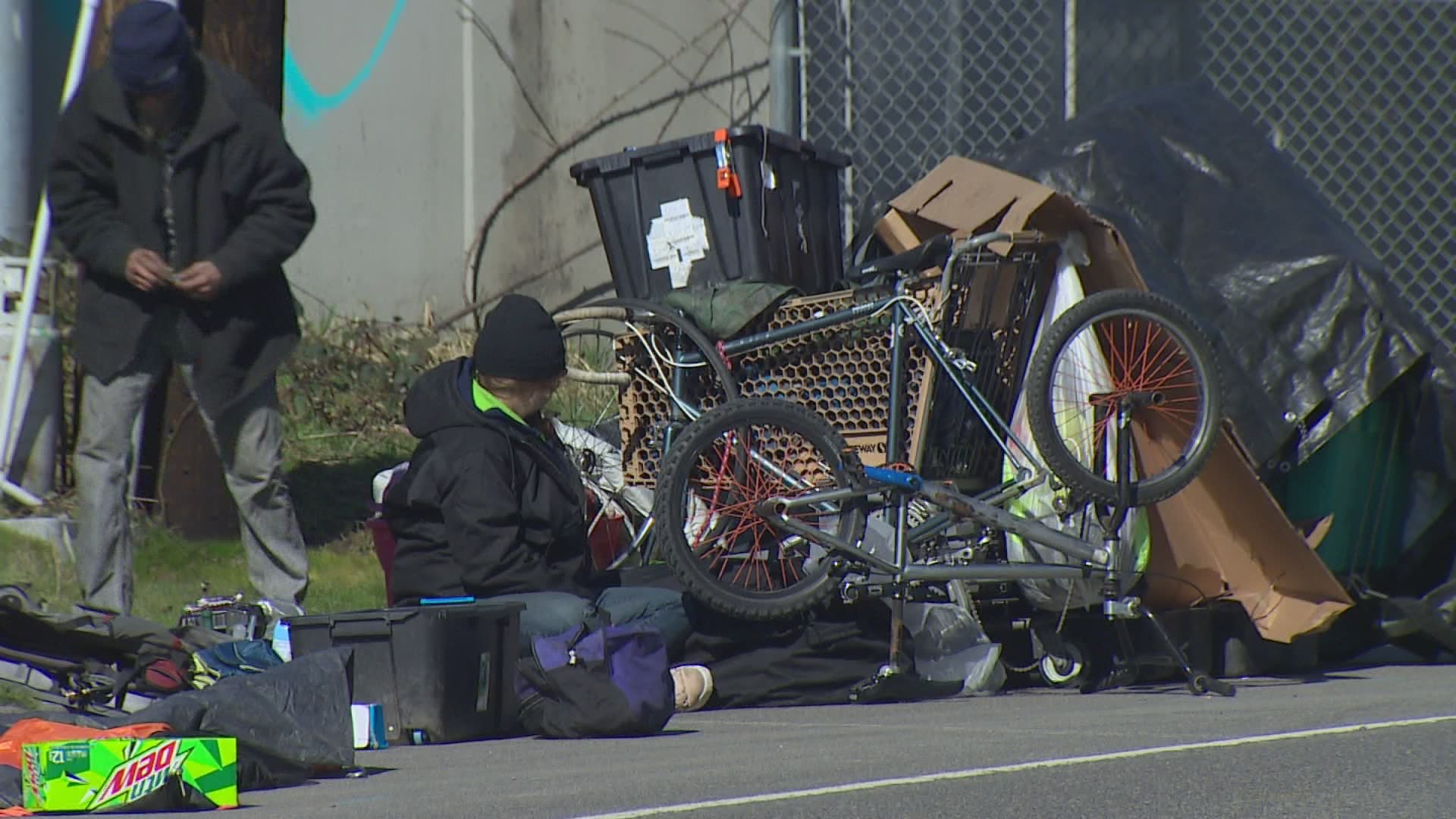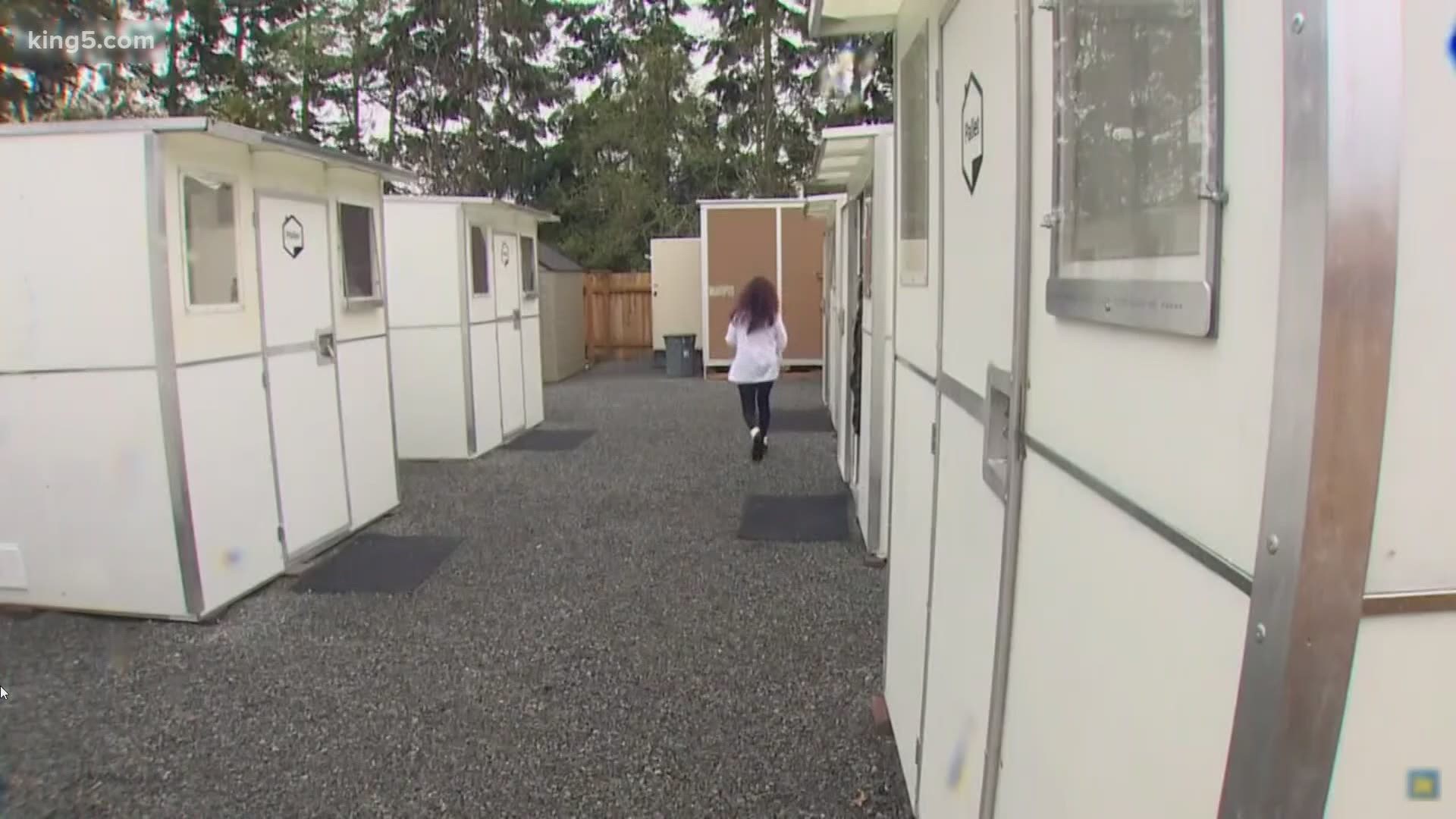EVERETT, Wash — Everett city officials are proposing a building temporary housing community to address homelessness — alongside a law that would ban all sitting and lying on the sidewalk within a 10-block industrial area.
Gary Watts, owner of Z Sport auto repair shop, backs the plan. His shop has been along Smith Avenue in Everett for 31 years. He said the last five have been miserable.
"I think we all feel like we've been under siege since 2016," Watts said.
Watts said since the people experiencing homelessness started setting up camp right across the street near the Everett Gospel Mission, there have been no fewer than 127 break-in attempts at his shop.
It got so bad, a few years ago he dubbed his neighborhood "Tweakerville," and started streaming its activities on YouTube.
He said the camp is killing business.
"What we find is people check our reviews and everything looks great. They know what our quality level is, but when they drive into the area, they just keep driving. They don't feel safe doing business in an area like this."
City officials have proposed putting the temporary housing community made of so-called "pallet houses" in the industrial area behind the Everett Gospel Mission. The 20 tiny homes would house about 30 people.
For that to be approved, however, the city wants new rules that would ban anyone from sitting or lying on the sidewalk within a 10 block area. Violators would face 90 days in jail or a $500 fine.
The city says it's a carrot and stick approach designed to nudge people into getting help.
But some advocates for homeless populations have their doubts.
"It's a repeated circle-cycle of craziness, not a cycle of solutions," said Penelope Protheroe who runs the homeless advocacy group Angel Resource Connection.
She said burdening people with criminal records or hefty fines only deepens the hole of homelessness. And forcing them out will only make matters worse.
"After they move out they'll be in the city with restaurants and houses and sidewalks and front yards with kids and dogs," Protheroe said. "It's just not appropriate to kick them out of an industrial area."
The "no sit/no lie" rule is attached to the pallet shelter ordinance, so if the new rule isn't approved, the housing project fails as well. Late Wednesday, the council amended the ordinance so the ban would not take effect until the pallet homes are available.
But Protheroe believes the ban shouldn't happen at all.
"That part needs to be stricken from the ordinance so we can come up with a sensible solution to this," Protheroe said.
Watts supports temporary housing, but only with the new rules. If the ordinance as a whole doesn't pass, he said he and other businesses along Smith Avenue will sue the city.
"There's nothing else left for us," said the 80-year-old. "Businesses are either gonna close up and move on, or they're gonna band together and look for a way to recoup some of the money we've lost."
A federal court struck down a similar ordinance in Boise, Idaho, saying the city could not criminalize sleeping on a sidewalk if there was no other shelter available.
The Boise battle took 12 years and cost the city more than $1.3 million to settle with people affected by the ban.
Officials in Everett believe their ordinance would be legal because it only applies to a 10 block area of the city.
The Everett City Council is expected to vote on the ordinance at its March 17 meeting.


